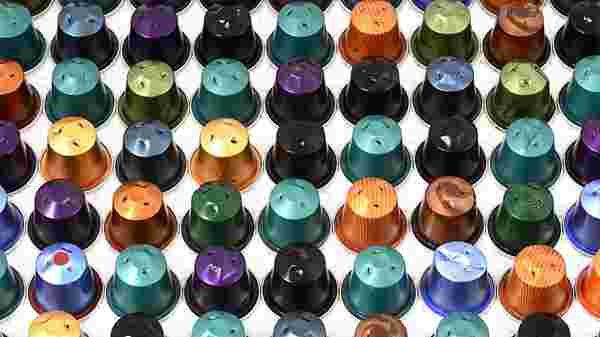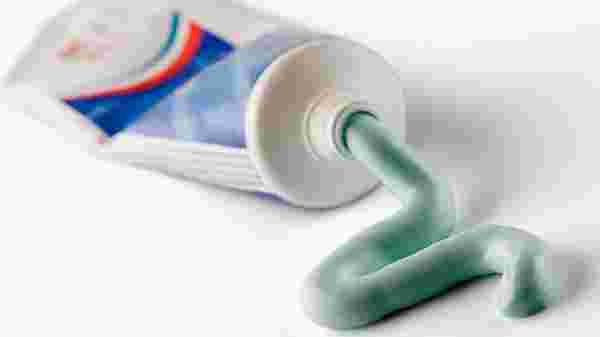These are all the items you shouldn’t put in your recycling bin
Recycling is a key component of sustainable living, but many of us aren’t sure what can and can’t be recycled when we head to the rubbish bin each day. And, according to one expert, laziness isn’t the only reason.
Sustainability advisor Nick Torday says recycling systems are difficult to understand and “broken”.
“This is not an issue for nuanced debate, it is fact,” he says. He explains that in the UK the government claims 46 per cent of household plastic waste is recycled, which is a gross overestimation.
“This is nonsense, the real number is less than 9 per cent and for some polymer types, less than 2 per cent – it is hopeless.”
Earlier this year the UN approved a landmark agreement to create the world’s first-ever global plastic pollution treaty. Torday adds that off the back of this “significant” agreement, a “fundamental systematic overhaul to plastic design, production and consumption” is needed.
Recycling is one system that could be improved. Just 8 per cent of people think that recycling labels are clear, according to YouGov – and that leads to a lot of Googling from confused consumers.
What are the most frequently searched household items?
Packing company ‘Lifestyle Packaging’ took a look at search data from Google to discover which items we are most confused about.
Then they laid out exactly when these items can and can’t be recycled. Read on for a handy guide to pin up in your kitchen.
Can I recycle polystyrene? – 112,000 searches
You can recycle polystyrene but not at home. It is a complicated process and in many countries that means it can’t be done on a local scale.
Even if your local authority says it will take it, it’s unlikely that it will end up being recycled.
One solution is to try to limit the amount you collect or find creative ways to reuse it. Another is to ask online retailers to stop using polystyrene as packaging, as their use of it accounts for a large percentage of all uses.
 PolystyreneCanva
PolystyreneCanvaCan I recycle coffee pods? – 73,600 searches
Coffee pods are another everyday item that can theoretically be recycled, but not in your bins at home. Their small size and light weight make them difficult to deal with and the coffee grounds can contaminate the rest of your recycling.
The best solution here is to ditch coffee pods altogether.
But if you have no choice but to use them, buy the ones that are home compostable, and ask your workplace to opt for the same. These can be added to garden or food waste where they will naturally degrade.
 Coffee podsCanva
Coffee podsCanvaCan I recycle crisp packets? – 31,200 searches
Though they often have a recycling symbol on the outside of the multi-pack, individual crisp packets are not recyclable at home.
Empty packets can often be dropped off at local recycling points which can be found at many supermarkets.
 Crisp packetsCanva
Crisp packetsCanvaCan I recycle Tetra Pak (cardboard cartons)? – 28,000 searches
These cardboard cartons, like juice boxes, can be recycled but only in certain areas. Tetra Paks are made from up to 90 per cent paperboard but have an aluminium foil liner and plastic cap that can make the recycling process more difficult.
If your local area doesn’t offer Tetra Pak recycling, they can often be dropped off at supermarket collection points or council-run recycling centres.
 Cardboard juice cartonsCanva
Cardboard juice cartonsCanvaCan I recycle light bulbs? – 19,600 searches
Old incandescent light bulbs can’t be recycled and should be thrown away with your usual waste.
Newer energy efficient bulbs, however, can be recycled at most larger waste centres and some shops.
So buy LED light bulbs whenever you can, and take the bulb type into account if buying new light fittings or lamps.
 Energy efficient light bulbs are better for the environmentCanva
Energy efficient light bulbs are better for the environmentCanvaCan I recycle BRITA filters (water jug filters)? – 17,800 searches
Water jug filters can’t be recycled in your home waste.
Used filters have to be collected and taken to your nearest recycling point where they will be sent back to the company.
You can find your local BRITA spot here.
 Water filters can’t be recycled at homeCanva
Water filters can’t be recycled at homeCanvaCan I recycle blister packs (pill packets)? – 13,600 searches
Made from PVC to protect your medication from contamination, blister packs have to be durable.
The properties of PVC mean that it’s not useful once it has been recycled.
Pharmacies will often collect them, however, to be turned into plastic pellets that can be made into recycled plastic products.
The cardboard boxes they come in can be recycled at home.
 Blister packs are made from PVC which can’t be properly recycled.Pexels
Blister packs are made from PVC which can’t be properly recycled.PexelsCan I recycle toothpaste?- 6,200 searches
Toothpaste tubes are often made from a mix of materials including plastic and metal. That can make them difficult to recycle at home.
Pump action toothpaste tubes are easier to recycle and can be put in with your home collection if your local authority also collects plastic pots, tubs and trays.
 Toothpaste tubeCanva
Toothpaste tubeCanvaWhat is ‘wishcycling’?
If you are ever unsure about whether an item can be recycled at home, don’t throw it in the recycling bin and hope for the best.
Wishcycling is the practice of putting something in the recycling bin in the hope that it will be recycled, even though it might be unsuitable, contaminated or only partially recyclable.
This can lead to the whole lot being sent to landfill – even the items that can be recycled.
It also pushes up the costs for recycling centres and can lead to delays. If a non-recyclable item enters the sorting process, it can lead to obstructions or even damage to the machinery, leading to delays, and consequently massive backlogs in the volumes of ‘recyclate’ waiting to be processed.
So always check what your local authority accepts, or ask a friendly neighbour, before throwing an item away.
And if you are uncertain about an item, it is preferable to place it in your general waste.
